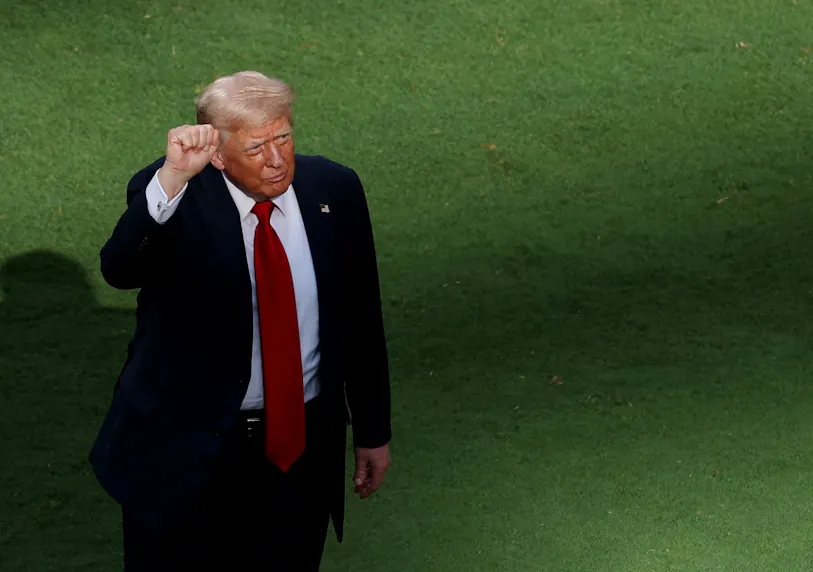Republican Lawmakers Push to Reverse Gambling Tax Hike in Trump Legislation

Last Updated: July 29, 2025 11:24 AM EDT • 3 minute read X Social Google News Link

Some Republican lawmakers are calling for a repeal of a tax modification on gambling that was included in a major policy bill signed into law by President Donald Trump. The policy takes effect in 2026, reducing the loss deduction to 90% from 100%, so individuals get taxed even if they come out even. The amendment has been a cause of worry among gamblers, lawmakers, and industry veterans.
House Ways and Means Committee Chair Representative Jason Smith of Montana said the change was a "mistake" inserted by the Senate and confirmed his interest in correcting it. The altered rule could mean that a gambler who wins and loses equal amounts in a year, for example, $100,000, would still owe taxes on $10,000.
Professional sports bettor Jack Andrews said this would disproportionately hurt high-volume players, whom he described as vital to the casino industry. He warned that many might stop betting or shift to platforms that don't create taxable paper trails, moving gamblers away from the best real-money online casinos, best sports betting sites, and brick-and-mortar locations nationwide.
The Congressional Budget Office estimated the change would generate $1.1 billion over 10 years. However, bipartisan efforts to reverse it have already started. Senators Ted Cruz, Bill Hagerty, Jacky Rosen, and Catherine Cortez Masto are backing the FULL HOUSE Act to restore the full deduction.
FAIR BET Act seeks permanent restoration of gambling loss deductions
Immediately following the announcement of the 90% deduction cap, Representative Dina Titus introduced the FAIR BET Act to restore the full 100% deduction for gambling losses permanently. It has been assigned to a committee but has not advanced.
The gaming sector has universally criticized the increase. Professional poker player Phil Galfond detailed how it would heavily penalize high-stakes poker players and direct this group to offshore platforms.
There has been support for a reversal from several directions. Kentucky Rep. Andy Barr has sponsored a new bill, HR 4630, becoming the first Republican to sponsor legislation to reinstate the deduction. His bill joins a growing number of bipartisan efforts, with members of Congress discussing the issue as a question of fairness and economic effect, especially in casinos like Las Vegas.
States eye tax hikes
As US lawmakers grapple with how to tax gamblers, several states are already increasing their levies on sports bets to fill deficits. North Carolina and Maryland are among those pushing bills to uprate operators' tax rates, with a focus on public programs including education and infrastructure.
Some states have already taken this action. New Jersey increased its gambling tax to 19.75% across all verticals. Meanwhile, Louisiana gambling tax increased to 21.5% for online sports betting, aiming to fund college athletics.
However, the fallout could be catastrophic with federal and state governments targeting the sports betting industry. Betting firms have warned that higher taxes could reduce odds and drive users to unregulated markets, significantly reducing any tax revenue lawmakers may expect from the increases.

Ziv Chen X social





